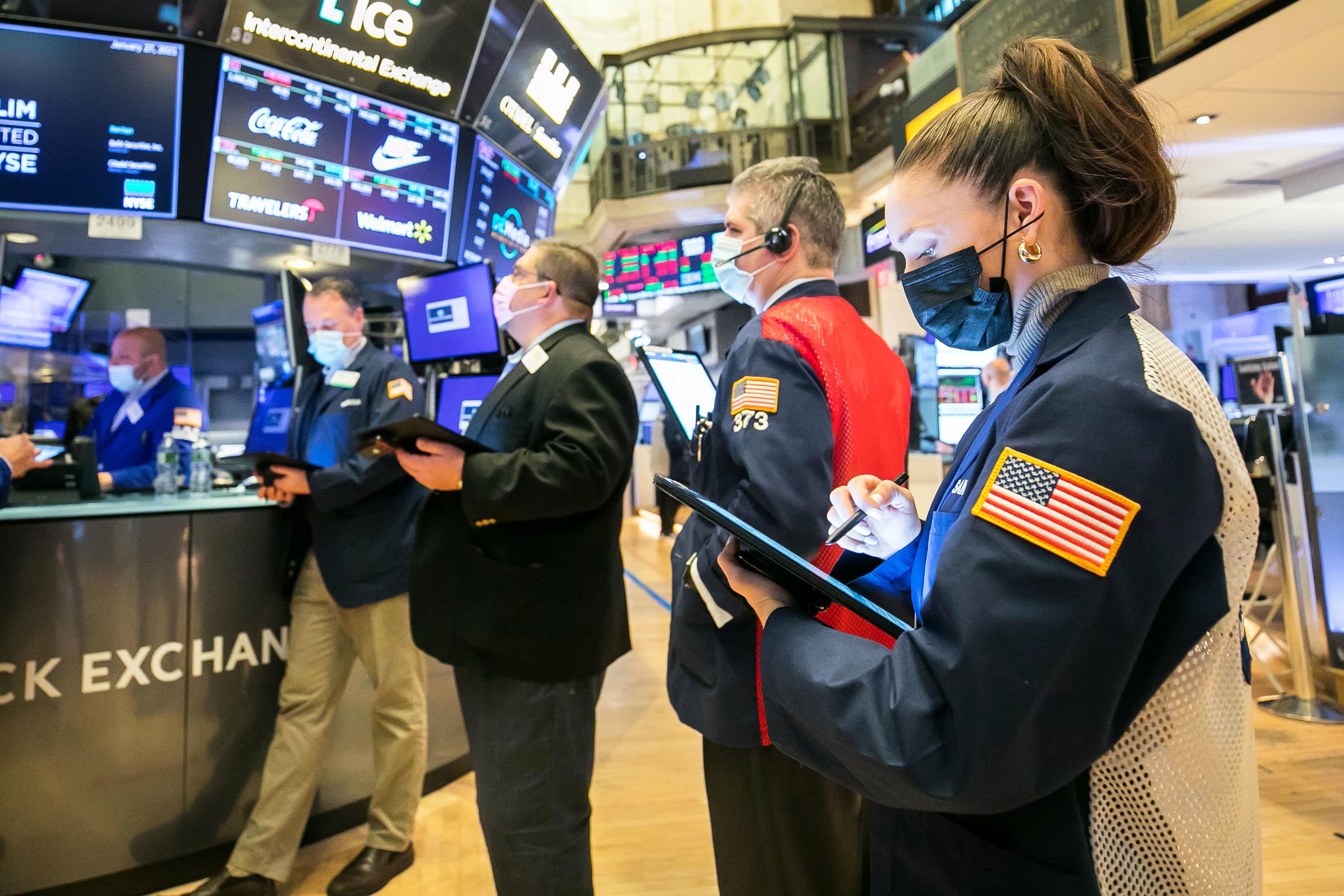Nasdaq closes 2.5% lower as Big Tech gets hit, economic comeback plays lift Dow

Steep losses in technology shares dragged down the S&P 500 on Monday as a continuous rise in bond yields dented the appetite for growth stocks. Meanwhile, investors piled into into economically sensitive names to bet on a comeback.
The broad equity benchmark lost 0.8% to 3,876.50 in volatile trading, falling for a fifth straight session amid the weakness in tech and consumer discretionary. The Nasdaq Composite fell 2.5% to 13,533.05 as Tesla shares slid 8.6%. Big Tech stocks came under pressure with Apple, Amazon and Microsoft all dropping at least 2%.
The Dow Jones Industrial Average reversed a 200-point loss to close 27.37 points higher, or 0.1%, at 31,521.69. A handful of economic comeback plays boosted the blue-chip benchmark. Disney jumped 4.4%, while industrial giant Caterpillar and chemicals company Dow Inc. both climbed more than 3.5%. American Express and Chevron gained 3.2% and 2.7%, respectively.
Some equity investors grew concerned about rapidly rising Treasury yields in recent weeks as they could especially hurt high-growth companies reliant on easy borrowing while diminishing the relative appeal of stocks.
The 10-year Treasury yield rose again on Monday to around 1.35% after jumping 14 basis points last week to its highest level since February 2020. So far this month, the benchmark rate has moved up 27 basis points. The 30-year yield touched a one-year high of 2.2% Monday. A basis point is 0.01%.
“This move in yields should be something that investors keep a close eye on,” Matt Maley, chief market strategist at Miller Tabak, said in a note. “Just because long-term rates are ultra-low on an historical basis, we do not believe that they will have to rise as far as most pundits think they do…before they impact the stock market.”
All eyes will be on Federal Reserve Chairman Jerome Powell, who delivers his semi-annual testimony on the economy before the Senate Banking Committee on Tuesday. His comments on rates and inflation could determine the market direction for the week.
On Monday, European Central Bank President Christine Lagarde said in a speech that the central bank is “closely monitoring the evolution of long-term nominal bond yields.” European sovereign bonds yields moved lower in response to her remarks.
Many on Wall Street still believe that the jump in bond yields reflects a sign of growing confidence in the economic recovery and stocks should be able to absorb higher rates amid strong earnings.
“We do not see the recent increase in yields as a threat to the bull market,” Keith Lerner, chief market strategist at Truist, said in a note. “Given that we are in the early stages of an economic recovery, monetary and fiscal policy remains supportive, the sharp rebound in earnings, and favorable relative valuations, we maintain our overweight to equities.”
Monday’s losses pared the Nasdaq’s February gains to 3.5%. The S&P 500 is up 4.4% this month, while the Dow has gained 5.1%.The small-cap Russell 2000 has outperformed with a 8.6% rally so far.
Airline stocks rebounded after Deutsche Bank upgraded several names in the industry to a buy rating. American Airlines jumped more than 9% on Monday.
On the pandemic front, the White House said that it expects to ship out millions of delayed coronavirus vaccine doses this week after a sweeping winter storm disrupted logistics. Gov. Andrew Cuomo said on Sunday that a New York resident has tested positive for the Covid-19 variant first identified in South Africa.
Subscribe to CNBC PRO for exclusive insights and analysis, and live business day programming from around the world.




